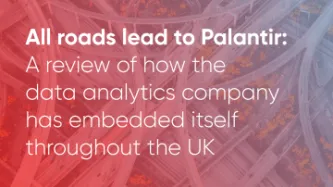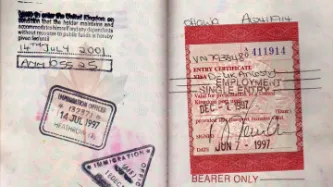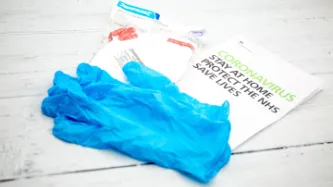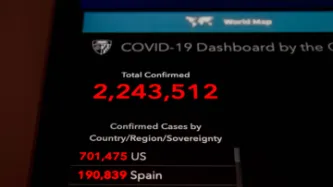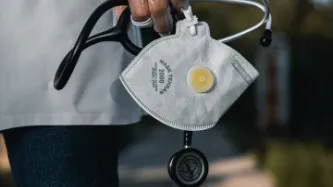Search
Content type: Examples
In October UK health officials discovered that limitations on the number of rows on an older version of Microsoft’s spreadsheet software Excel led the system to miss 16,000 positive coronavirus tests and fail to alert an estimated 50,000 people who had been in close contact with them that they should quarantine. About half of the missed cases are thought to have been in northwest England, where infection rates were already rising. The government’s science advisors recommended revamping the…
Content type: Examples
[UK] Refugees and asylum seekers are wrongly sent NHS charges for 'tens of thousands' for healthcare
NHS hospitals are wrongly sending bills for as much as “tens of thousands of pounds” to asylum seekers and refugees in Bristol - and refusing some care upfront, it is claimed.
Asylum seekers and refugees are entitled to free healthcare in the UK.
But there are numerous anecdotes of vulnerable migrants receiving enormous bills for the treatment they have received and being refused hospital care not deemed “urgent or necessary”, according to support agencies in Bristol.
Some charging letters…
Content type: Report
One name in tech has become embroiled in controversy: Palantir, a big-data analytics outfit.Palantir weren’t that well known in the UK until the Covid-19 pandemic, when they were thrust into the national spotlight after the UK Government granted them access to reportedly unprecedented quantities of NHS patient data for processing and analysis in response to the novel Coronavirus.Palantir isn’t just working with the NHS, yet despite their extensive work with the government could potentially be…
Content type: Examples
Manchester-based VST Enterprises is developing a rapid COVID-19 testing kit intended to help restart stadium sporting events. The results of tests, which fans will take the day before the event they wish to attend and provide results within ten minutes, will be stored in VSTE’s V-Health Passport, a secure mobile phone app into which users enter their name, address, date of birth, phone number, and doctor information, plus a scanned official identity document against which the smartphone can…
Content type: Examples
Manchester-based VST Enterprises is developing a rapid COVID-19 testing kit intended to help restart stadium sporting events. The results of tests, which fans will take the day before the event they wish to attend and provide results within ten minutes, will be stored in VSTE’s V-Health Passport, a secure mobile phone app into which users enter their name, address, date of birth, phone number, and doctor information, plus a scanned official identity document against which the smartphone can…
Content type: Examples
Testing for All is helping small employers and individuals access antibody tests by making them available at £42 each out of fear that “testing inequality” could fuel greater financial inequality, as private schools and big businesses have introduced testing to allow pupils and employees to return to school and work but state schools and small businesses are left to rely on the state. Among the employers adopting antibody testing for staff are Credit Suisse, Ocado, and Premier League football,…
Content type: Examples
Hours before OpenDemocracy filed suit to compel the UK government to release all the contracts governing its deals with a list of technology firms including Amazon, Microsoft, Google, Palantir, and Faculty, the UK government released the contracts. Faculty is being paid more than £1 million to provide AI services for the NHS, and the companies involved in the NHS data store project, including Faculty and Palantir, were originally granted intellectual property rights and were allowed to train…
Content type: Examples
UK police reported to be planning separate contact tracing system
Police forces in the UK are planning their own contact tracing system because they are concerned that giving details to the national contact tracing system would compromise undercover operations and working methods. Options under discussion include having police forces take over all contact tracing for police officers and staff or seconding staff from the NHS test and trace system to police forces. Health officials, however, say…
Content type: Examples
In the three months from March to May 2020 the UK government awarded at least £1.7 billion in contracts to private companies, most of them without a competitive tender process under emergency procurement measures put in place in March. A quarter of the 400 contracts that government departments have published have gone to companies that have not previously carried out government work, and at least seven were worth more than £100 million. The largest that has been published was a £234 million…
Content type: Examples
The app-based track-and-trace system that was supposed to be in place in the UK by June 1 will not be working at full speed until September or October, and the chief executive of Serco, one of the main companies contracted to deliver it, doubted the system would evolve smoothly. Scientists have said that lockdown should not be eased until the track-and-trace system is well-established. Serco is responsible for recruiting 10,000 of the 25,000 contact tracers, and is being paid an initial fee of…
Content type: Examples
The UK government spent two months touting its contact tracing app as the prospective basis for returning to something close to normality. As the June 1 target date approached, however, the government increasingly downplayed its importance. In the meantime, Apple and Google’s API were adopted by several others countries that had intended, like the UK, to build their own, and a trial on the Isle of Wight failed to produce the download numbers or success rate the commissioning agency, NHSx, had…
Content type: Examples
After the CEO of NHSx told the the UK parliament that data harvested by the NHSx contact tracing app would be retained for future research, the UK Ministry of Defence said it would turn the data over to its Jhub to sanitise the data and remove all personally identifying information before passing it on to NHSx. The app was due for improvements to its security after the code was released on Github and the app was trialled on the Isle of Wight.
https://www.theregister.com/2020/05/20/…
Content type: News & Analysis
In September 2019, PI published the report Your Mental Health for Sale. Our investigation looked into popular mental health websites and their data sharing practices.
Our findings suggest that, at the time of the research, most websites we looked at were using third party tracking for advertising purposes, sometimes relying on programmatic advertising technologies such as Real Time Bidding (RTB), sharing personal data with potentially thousands of actors. Some websites were also found sharing…
Content type: Long Read
What Do We Know?
Palantir & the NHS
What You Don’t Know About Palantir in the UK
Steps We’re Taking
The Way Forward
This article was written by No Tech For Tyrants - an organisation that works on severing links between higher education, violent tech & hostile immigration environments.
Content type: Examples
The UK's Project OASIS collects data from third-party app providers that are collecting COVID-19 symptoms and demographic data to help the NHS respond to the COVID-19 pandemic. The Ministry of Defence Strategic Command's technology innovation hub, JHub, has been brought in to provide assistance and coordination, and to facilitate the secure transfer of relevant symptom and epidemiology data from the third-party apps to NHSx. Part of JHub's role is to remove any identifying information, erase…
Content type: Examples
The UK's NHSx contact tracing initiative requires anyone who tests positive for COVID-19 to provide the full name, postcode/house number, phone number, and email of anyone they've been in contact with, and Public Health England will keep the data for 20 years. The privacy notice was quickly updated to not that those testing positive will also be asked for NHS number, sex, symptoms, and when symptoms started. Those gaining access to the data will include two outsourcing companies, Serco and…
Content type: Examples
NHS Digital has added facial recognition to its app, which allows people to order prescriptions, book appointments, and find health care data, in hopes it will also be usable as an "immunity passport" once at-home testing becomes available. The NHS facial recognition system was built by iProov, and is available in England for both Android and iOS devices; users enroll by submitting a photo of themselves from an official document such as a passport or driving licence and then using the phone to…
Content type: Advocacy
Last week, Privacy International joined more than 30 UK charities in a letter addressed to the British Prime Minister Boris Johnson, following his recent declaration, asking him to lift No Recourse to Public Funds (NRPF) restrictions.
Since 2012, a ‘NRPF condition’ has been imposed on all migrants granted the legal right to live and work in the UK. They are required to pay taxes, but they are not permitted to access the public safety net funded by those taxes.
This is not a topic we are known…
Content type: News & Analysis
As countries around the world develop contact tracing apps to contain the spread of Coronavirus, they keep facing a problem: for them to be effective a certain percentage of the population has to download them. Something like 60% is the threshold for the app to be effective. So far only Iceland has gotten close with 38% of their country downloading it.
The UK is currently trialling an app, which is designed to notify people if they've been close to someone with symptoms of covid-19 for 15…
Content type: News & Analysis
This week, we read that a former Apple contractor who blew the whistle on the company’s programme to listen to users’ Siri recordings has decided to go public, in protest at the lack of action taken as a result of the July 2019 disclosures. The news adds to a series of revelations that have been reported over the past months.
While the issue raises serious questions regarding the compatibility of such practices with data protection laws, at the same time, it highlights a wider problem that…
Content type: Examples
At a cost to itself of £88,000 a week in salaries alone, Palantir has committed 45 engineers to a government data project intended to help predict surges in demand for the NHS during the pandemic. The company will be paid £1 a week for its work. Besides Palantir's work supporting the US Immigration Customs and Enforcement, a major concern is vendor lock-in that may make it difficult for NHSx to extract the insights Palantir helps it develop and move elsewhere.
https://tech.newstatesman.com/…
Content type: Examples
More than 3 million people in the UK have downloaded the JoinZoe COVID Symptom Tracker, which was designed by doctors and scientists at King's College London, Guys and St Thomas' Hospitals working in partnership with the health science company ZOE Global Ltd and endorsed by governments and NHS in Scotland and Wales, and supported by numerous UK health charities. The app asks for some basic information, including an email address, after which it asks you to check in once a day to say whether you…
Content type: Long Read
This week saw the release of a coronavirus tracking app within the United Kingdom, initially to be trialled in the Isle of Wight. Privacy International has been following this closely, along with other ‘track and trace’ apps like those seen in over 30 other countries.
The UK’s app is no different. It is a small part of a public health response to this pandemic. As with all the other apps, it is vital that it be integrated with a comprehensive healthcare response, prioritise people, and…
Content type: Long Read
On 12 April 2020, citing confidential documents, the Guardian reported Palantir would be involved in a Covid-19 data project which "includes large volumes of data pertaining to individuals, including protected health information, Covid-19 test results, the contents of people’s calls to the NHS health advice line 111 and clinical information about those in intensive care".
It cited a Whitehall source "alarmed at the “unprecedented” amounts of confidential health information being swept up in the…
Content type: Long Read
Today, migrant communities in the UK already face multiple well-documented obstacles in accessing healthcare, not least because of charges to access the National Health Service (NHS), as it is the case for non-EU migrants, and legitimate fears of data-sharing between the NHS and the Home Office.
In the current pandemic, in addition to these concerns, asylum-seekers face an impossible choice: risk exposure to coronavirus, or be unable to apply for asylum.
Individuals seeking…
Content type: Press release
Photo by Ashkan Forouzani on Unsplash
Today Privacy International, Big Brother Watch, medConfidential, Foxglove, and Open Rights Group have sent Palantir 10 questions about their work with the UK’s National Health Service (NHS) during the Covid-19 public health crisis and have requested for the contract to be disclosed.
On its website Palantir says that the company has a “culture of open and critical discussion around the implications of [their] technology” but the company have so far…
Content type: Examples
NHS England is using Yoti's digital ID card solution to verify health care workers' identity; the cards are added to staff phones, enbaling them to use a contactless ID app to prove their identity both online and offline. Yoti is providing the system for free for three months to all public health organisations, emergency services, and community initiatives working to contain the pandemic.
Source: https://www.biometricupdate.com/202004/uk-national-health-service-rolls-out-yotis-biometric-…
Content type: Examples
British biometric start-ups are helping the UK government create digital passports.
VST Enterprises is providing a biometrics-backed digital health care passport, V-COVID, to help critical NHS and emergency services workers get back to work; the passport will incorporate test results and be included in an app that can be scanned from two meters away. In combination, Patchwork Health, which provides NHS trusts with a digital platform and Truu, which provides a digital staff passport,…
Content type: Examples
On March 20, the UK's Department of Health and Social Care published a notice providing legal backing for the NHS to set aside the duty of patient confidentiality as part of its response to the COVID-19 pandemic. As long as it is to fight the coronavirus, NHS organisations and GPs may share whatever patient data they deem necessary.
Source: https://twitter.com/halhod/status/1245297265054367744/photo/1
Writer: Hal Hodson
Publication: Twitter
